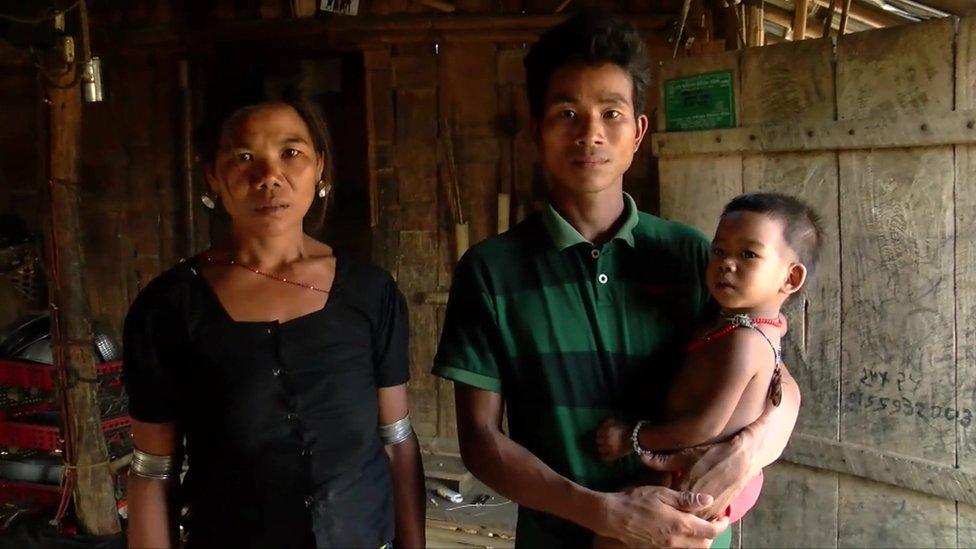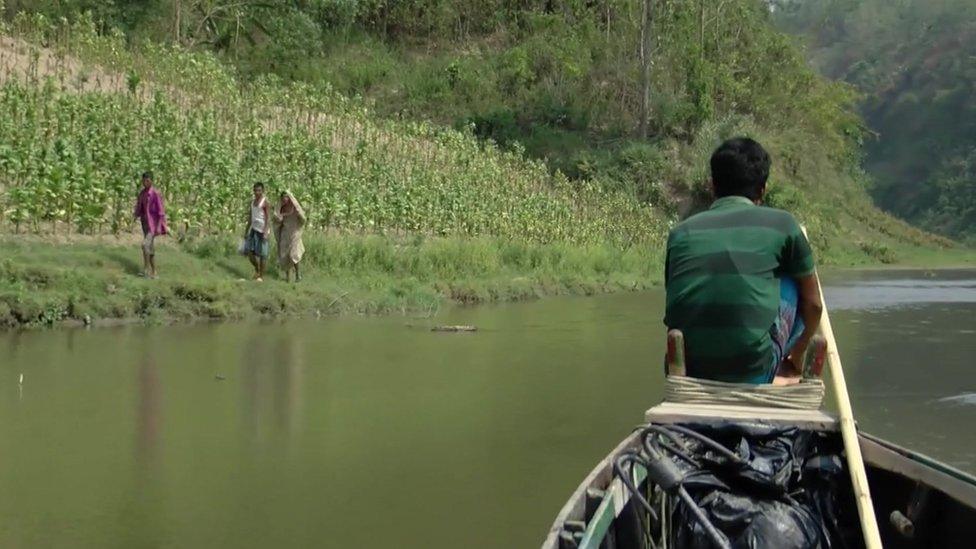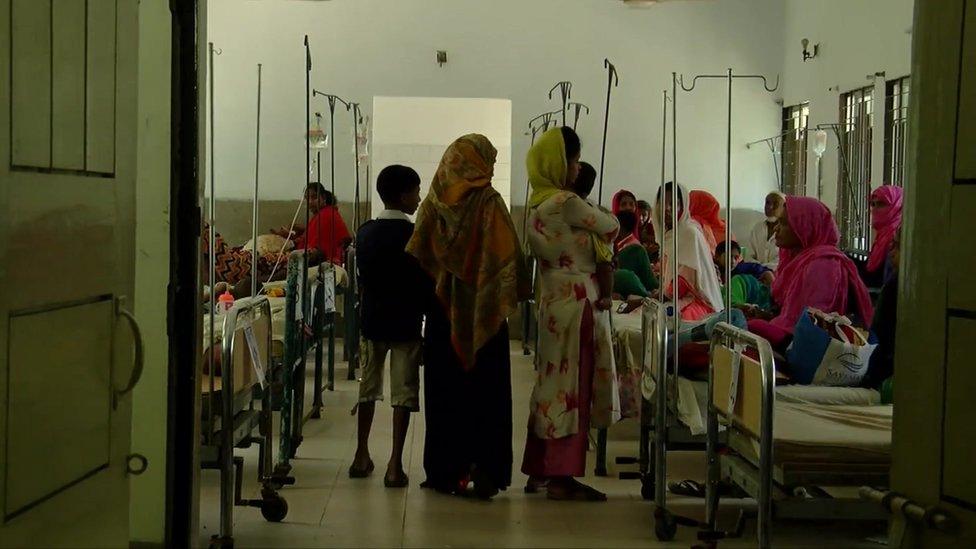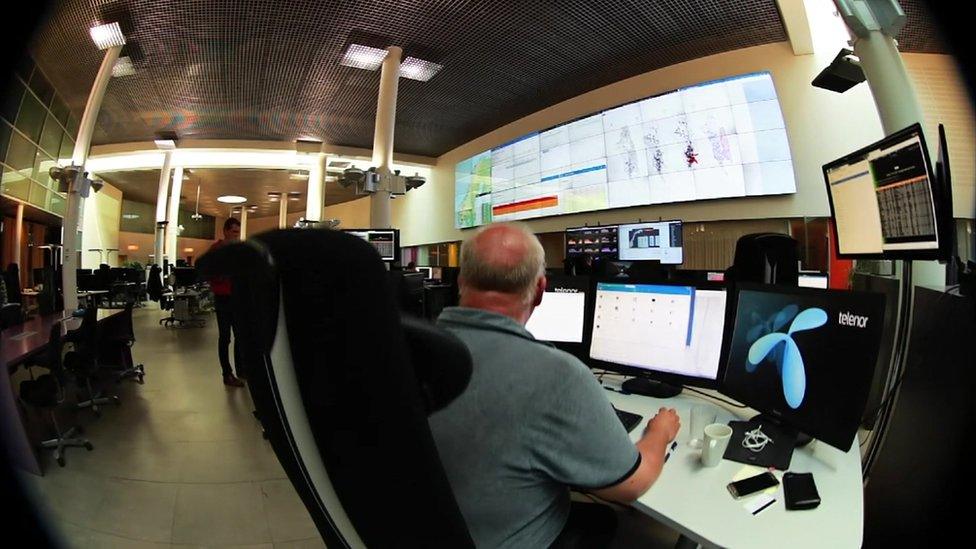Big data 'can stop malaria outbreaks before they start'
- Published

Menpaw Mro lost his daughter to malaria
A ground-breaking study in Bangladesh has found that using data from mobile phone networks to track the movement of people across the country can help predict where outbreaks of diseases such as malaria are likely to occur, enabling health authorities to take preventative measures.
Every year, malaria kills more than 400,000 people globally - most of them children.
Menpaw Mro lifted his young daughter on to his shoulders and began the long journey to the nearest hospital, in the Chittagong Hill Tracts, first on foot, then by boat and finally in a small motorised rickshaw.
Time was desperately short.
For several days, he had assumed the fever afflicting six-year-old Rum Rao Mro was not serious and she would soon recover at home, in their village in this remote region of Bangladesh.
Instead, the fever steadily worsened, putting her life in danger.
"She could not sleep, she was crying all the time and had breathing difficulties," he says.
They never reached the hospital. Rum Rao died on the last leg of the journey. She'd been suffering from severe malaria.
Although in many areas of Bangladesh the number of people falling ill or dying from the malaria has dropped dramatically in recent years, it remains a persistent problem in the Chittagong Hill Tracts - with the region recording the highest number of cases in the country.
If these stubborn pockets of malaria were now to be tackled successfully, it would open up the tantalising possibility of Bangladesh finally being able to declare itself free of the deadly disease.
Drug resistance
But doctors in the Hill Tracts believe they have only a short window of time to achieve this, because the parasites carrying the disease are becoming increasingly drug resistant. Many anti-malarial medicines now have no impact.

Malaria is a persistent problem in the Chittagong Hill Tracts
This drug resistance originated in Cambodia and has now spread to Myanmar, which shares a border with the Chittagong Hill Tracts, as do parts of eastern India.
"It's concerning because the malaria figures in India and Myanmar are worse than ours," says Dr Kamrul Hasan, who works in one of the main hospitals in the Hills Tracts. "Their rate of infection is much higher than ours… that's why there is the possibility of the disease spreading into our country."
But now help is at hand from an unexpected source: the mobile phones of millions of Bangladeshis.
It is part of a project based in the Chittagong region that for several years has been anonymously tracking the movements of people in the area using the data from their mobiles.
The big data provides an accurate picture of where they've travelled to in the region and beyond, making it possible to predict where malaria outbreaks are likely to occur.

Hospitals are under pressure
While malaria is caused by mosquitoes biting people and in so doing introducing malaria parasites into the bloodstream, the insects themselves have a very short range of travel.
It is humans travelling to different parts of the country who can spread the disease. If they are carrying malaria parasites, these can be passed in to the local populations through mosquito bites.
Preventative action
Thousands of kilometres away in the Norwegian capital, Oslo, the phone company Telenor collates all the anonymous data and sends it to be analysed by academics at Harvard School of Public Health and a research unit in Thailand run by specialists from Oxford and Mahidol universities.
"This is the first time we are using the mobile data to address the mobile and migrant population within the country," says Dr Mohammed Akataruzzaman, of Bangladesh's National Malaria Elimination Programme.
"This kind of big data through the mobile phone recording and also patient surveys about the disease will obviously help with the elimination of malaria within the country."

Big data is used to create risk maps
The different types of data, including medical information provided by the Bangladesh ministry of health, are used to create risk maps indicating the likely locations of malaria outbreaks so the local health authorities can then be warned to take preventative action, including spraying insecticides and stockpiling bed nets and medicines to protect the population from the disease.
"I believe it is extremely important to use accurate information about travel patterns in order to understand how these diseases spread," says Kenth Engo Monsen, Telenor's senior research scientist.
"And a mobile operator has that information, So if you are truly going to eliminate these threats, then you also have to a use this information. It's one piece of the puzzle."
That is a view shared by Dr Caroline Buckee, of Harvard School of Public Health, who says that understanding where parasites move to and from in Bangladesh is a major step forward.
"This is going to be absolutely critical to achieve elimination [of malaria]," she says.
And this innovative use of big data could be used to help tackle other diseases, according to Mr Monsen, who believes the Bangladesh project could change the way mobile data will be used in the future.